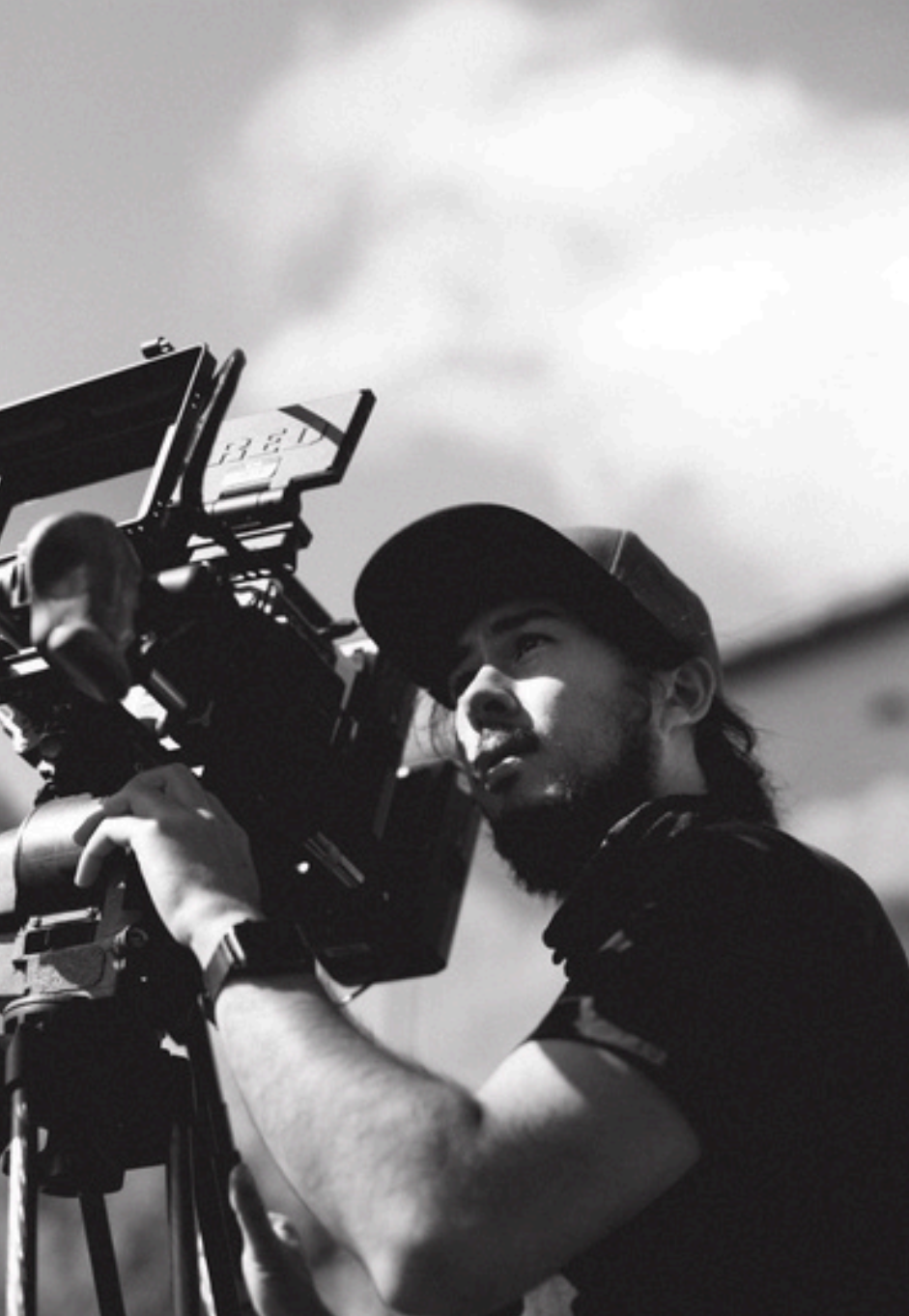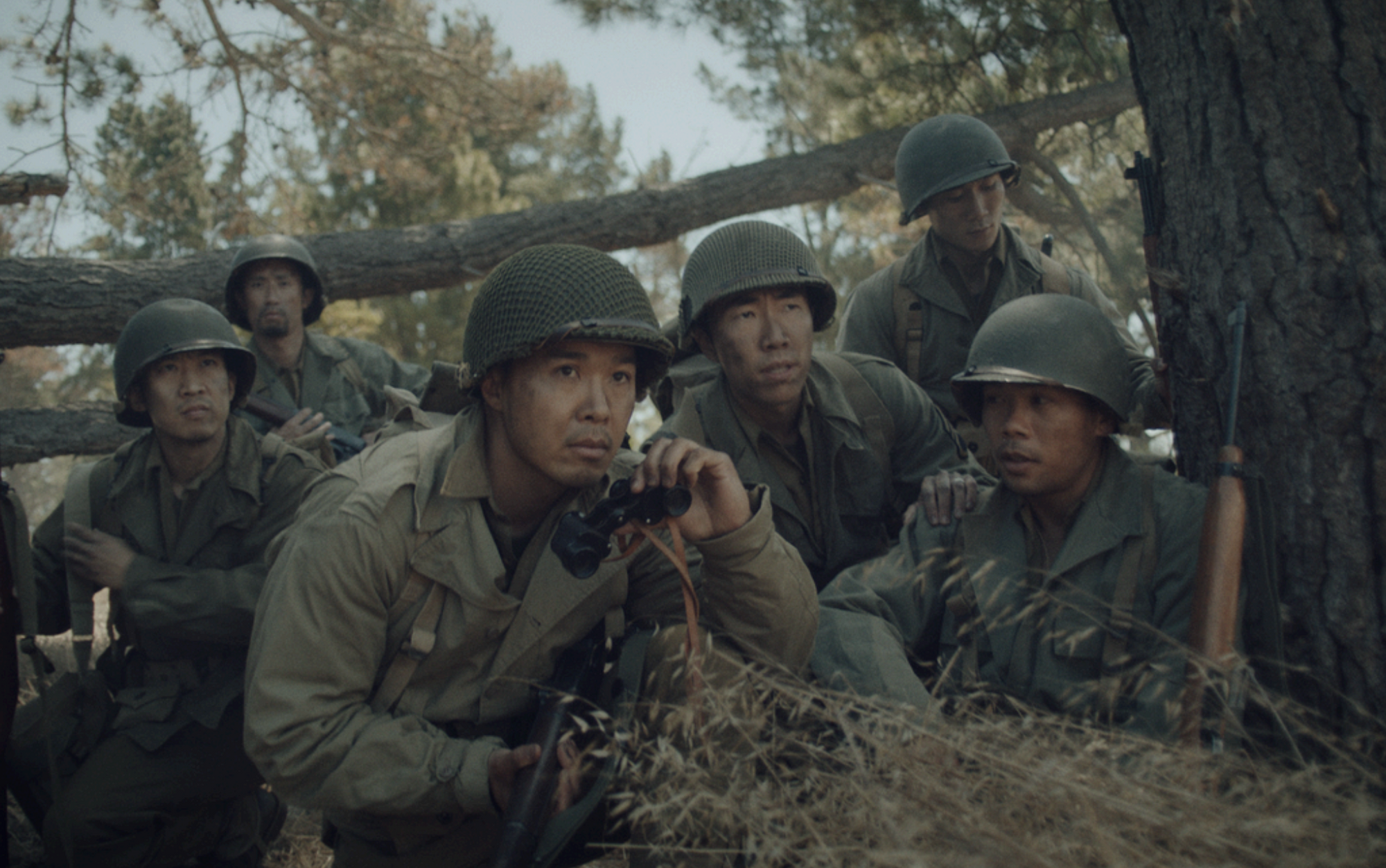
The Nuance of War: An Interview with Darren Haruo Rae
Darren Haruo Rae placed as a top-5 finalist in the 2023 Film Pipeline Short Film season with his period war drama Nisei, praised by Pipeline execs as “one of the best, if not THE best, war short films we've ever reviewed … an impressive director to keep an eye on.”
We get a decent amount of war or war-adjacent films, and going into Nisei, I thought, “well, good luck making this stand out.” Not to be cynical (but hey, it’s true—war films are hard, to put it bluntly).
And I don’t think it took more than a minute to realize, “oh okay, this is different.” And then like a lightning bolt, you’re invested. Although there have been versions of this story out there before, what angle, what perspective, did you want to take for a fresher spin?
I honestly can’t say that my intention was to try and make it different. I think a lot of that comes down to the values and why I wanted to make this film. Growing up, listening to my grandparents talk about the internment camps and the war really molded me into who I became as an adult. The older I get, the more appreciative I am for the life I have and how much they had to sacrifice.
My grandfather had a love for films. I would sit on the floor with him at his house and watch movies together. I always knew that I would one day make a film about the 442nd. The pacing and tone all just felt right to me. I wanted the scenes to breathe, to feel soft spoken. Culturally we (Japanese Americans) are very proud, but also very reserved, and I wanted the film to articulate this.
You strip away the war, ethnicity, and time period, you are still left with the heart: family. This film is about family, it is about the ties that bind, and it is about the perceived expectation of a son to a father.
There’s a seemingly endless array of films that could be made from this era. But what could warrant a studio-level feature of Nisei? Not of Oppenheimer scope necessarily, but one where you’re able to more deeply explore the characters and these themes. What is it about the events that led up to this moment, and the repercussions after, that feel so relevant to the modern era?
The biggest difference from Nisei to other films about this era is the persona of America. In most history books and movies, we're seen as the beacon of hope, the altruistic entity that vanquished evil. What this doesn’t cover is the nuances and injustices happening back on American soil.
My grandfather and thousands of others volunteered for the military, even after their country betrayed them. I can’t say I fully know the answer to this. Was it from a place of loyalty? A need to prove he was American?
World War II movies have been made a hundred fold and will continue to be told. But that doesn’t mean they're stale. If anything, we're just scratching the surface on this time period.
The story of the Japanese-Americans has so many facets to it. What was it like being a child in the camps? A woman? What about the men and women who were sent to Japan even though they were born in America? The No No boys (Google it)? This story is bigger than just my grandfather and the 442nd, it is about the 120,000 Americans who were punished simply because of their ethnicity and how each person responded to it.

What were some of the ways you got around filming bigger-budget, bigger-effects battle scenes? Any tips for future action, war, or period filmmakers would be appreciated, I’m sure.
I did a lot of research looking at how all scales of budget were able to shoot war films. What I learned was that, it didn’t matter the budget, what mattered was the perspective. Is there a storyline or chain of events that you can easily follow throughout a battle sequence? Many films have huge budgets, but that’s all it becomes, explosions and effects, nothing to drive the story forward. Having a sense of perspective is crucial to making it work.
The other challenge we faced is how can we make a battle feel full with only six soldiers? Running up a giant hill to a few foxholes didn’t feel believable to me. From the cinematography side, we decided to use a lot of long lenses. It’s a large space, but make it feel small. Bullets are flying by, you could be killed at any moment, so yes it is very claustrophobic. Seeing soldiers move and die from another’s perspective also gives a layout to the battlefield. The audience is able to track what is happening where. This all ties to the end goal. It isn’t just kill and win, but rather, what is each person thinking in that moment and how does that dictate their action?
In terms of gaps in the industry, films we don’t have enough, or that pipeline pulling young creators up the ladder ... what do you see as lacking? What’s Hollywood missing that audiences need?
It's a great time for new voices. With so many platforms and viewing options, there should be no reason every voice gets heard. From my personal experience, I do see a lack of Asian-American leading roles in film and television. I understand that what we do is a business and star power is what gets people in seats. But then it's up to us as filmmakers to create the next generation of stars that are as diverse and inclusive as the real world.
Your direction as a filmmaker: what do you feel is your wheelhouse, and why? What are some of the past films, writers, or directors that had an impact on shaping your style?
I was shown many classic 80s and 90s films as a child, and my inspiration comes from that style. I’ve come to say my style is Asian Americana. Let’s take these themes of family, love, and loss, but put my own cultural spin on it. I don’t need to explain or justify why I have an Asian lead, but I also don’t need to coddle the audience. Let them experience the film how they want to.
Some modern inspirations for me are Christopher Nolan and Dennis Villeneuve. Their world-building and cadence are complete mastery. Filmmaking is a team sport, and it's about finding a balance between performance, cinematography, production design, and every other department. Their films ooze with substance, and they treat every frame with time and care. Whenever I see one of their films, I get a feeling in my gut that tells me “this is what a movie is."
If you could adapt a book, a true story, anything you wanted … ?
I obviously want to continue my journey with Nisei and do it as a feature.
Aside from that, I am a huge sci-fi and video game fan. I love worlds that can seem larger than life and extreme, but rooted in core human themes. I would love to create a live action Gears of War (video game).
From a book perspective, anything from Haruki Murakami or Isaac Asimov.
Gut reaction answer only—no cheating, no hesitation … Best war film ever made (that you’ve seen, of course). Go.
This is probably the boring answer, but I have to go with Saving Private Ryan.
Besides being one of the greatest war films of all time, it's also one that inspired me as a child. What makes a war film great is that it's actually an anti-war film. The point is to show the true horror and tragedy of what humans can do. It doesn’t sugarcoat, it doesn’t glamorize, it humanizes. It shows what people will do on the brink and how our animalistic nature comes out.
*Feature Image: writer/director Darren Haruo Rae

